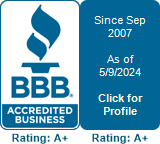5 Essential Tips for Staying on Top of Business Expense Tracking
- By Admin
- •
- 02 Sep, 2017
- •

If you forget to claim all of your eligible business expenses, you unnecessarily drive up your tax liability. On the other hand, if you claim expenses that don't qualify as business expenses, you risk audit and potential penalties for unpaid taxes.
Wondering how to stay on top of your small-business expenses? Here are five essential tips.
1. Understand Which Expenses Qualify
So that you don't overlook any expenses or claim any expenses erroneously, it's critical to understand the IRS's definition of business expenses. Basically, the IRS has two criteria for business expenses: they must be usual and necessary. “Usual” simply means that the expenses are relatively common or routine for your industry. For instance, a freelance writer may need to buy notepads for making notes while a restaurant owner would needs plates and a daycare provider needs toys.
“Necessary” simply means that the expense is helpful for your business. “Necessary” doesn't mean that your business absolutely can't function without incurring that expense. For example, imagine you travel for work and write off mileage on your vehicle. While you may be able to walk from place to place, the IRS doesn’t require you to walk. Similarly, you could work while sitting on the floor, but the IRS still allows you to write off the cost of a desk.
2. Try Tech Tools
There are numerous expense-tracking apps that can help you stay on top of expenses. Ideally, you need an app that engages with your accounting software so you can instantly upload your expenses to your accounting records or share expenses with your accountant through the cloud. You may also want an app that works on your mobile phone so you can record expenses on the go.
3. Develop a Routine for Tracking Expenses
Whether you work on your own or have multiple employees, it's critical to have a routine in place for tracking expenses. For instance, if you work on your own, you may want to establish a set routine of recording expenses as they occur. The process could be as simple as throwing the receipt in a shoebox. If you keep digital copies of your receipts, remember to keep the hard copy of the receipts or invoices too.
Similarly, if you have multiple employees, you may want to set a workflow that defines how employees request permission for certain expenses. For example, you could need policies for whether or not employees pay on their own or use a company card, how employees submit receipts, or how and when you put the expenses into your records.
4. Set Aside Regular Time for Expense Tracking
Ideally, you should not leave expense tracking until the last minute. If you're trying to organize all your expenses at tax time, you will likely find yourself in a time-wasting organizational nightmare. To avoid that, set aside time for expense tracking on a regular basis. Depending on the size of your business, you might track expenses once a week or even just once a quarter.
5. Get Professional Help
As a business owner, you have to deal with a lot of tasks. Rather than weighing yourself down with accounting and bookkeeping work, consider outsourcing those tasks to the pros so you can focus on other aspects of your business.
Accountants can help you organize shoeboxes full of receipts, and they can also help you create an expense-tracking system that makes it easy to stay on top of your expenses every day of the year.
At Williams & Associates Tax Services, we offer a wide range of accounting services, including expense tracking and tax return prep. We work with all kinds of businesses, from sole proprietorships and individuals to C- and S-corporations. To get the professional help you need for your books, contact us today.
One vital aspect of a business that demands careful attention is payroll management. Learn why hiring a certified accountant can improve operations.
Turning to a full-service accounting firm to outsource key CFO responsibilities might just be the solution you're looking for. Read to learn more.
Many businesses might make mistakes when filing their tax returns. Learn about a few examples of mistakes and tips on how to avoid the mistakes.
Proper accounting and bookkeeping are vital to the survival of an online business. Read this blog to learn six tips that will make these things easier.
Rather than hiding from your bookkeeping be proactive with it in order to avoid problems. Learn why proper bookkeeping matters more than you thought.
For a small- or medium-sized business owner, taxes may be frustrating. Luckily, you can lower your tax burden. Learn how in this blog.
Every business needs one or more individuals who manage and guide its finances. Learn about the details of what each accounting role does.
Running a business requires a lot of work, and much of that work involves finances. Check out these three reasons you may need forensic financial services.
Errors in bookkeeping can have a large impact on your finances. Read on to learn five common errors and how to safely avoid them in the future.











